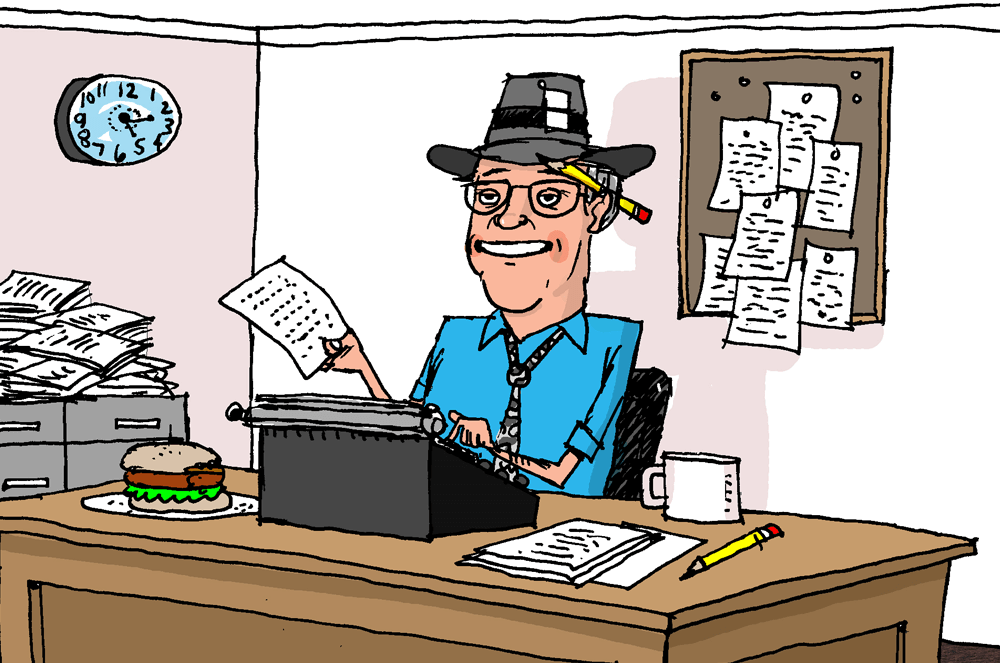
I have worked for the Toastmaster magazine a little more than 15 years. That’s a pretty good chunk of time. Yet it represents about one-sixth of the magazine’s colorful life—the publication debuted 92 years ago, in 1933. I’m proud to be part of this long tradition, and I have seen a parade of talented, diverse, eloquent, and inspiring Toastmasters featured on these pages.
I have written many articles about such members. I have edited even more. Now I’m trying something different: writing a column.
What to expect here? Some months, it may be an observation about public speaking or leadership, other months a discussion with someone I think is worth knowing. Whatever the topic, I’ll be focusing on all things communication and leadership related, and as the name of the column says, I’ll be “Speaking Out.”
Of course, communication and leadership happen on the home front, too, so I may touch on that dynamic as well. As the father of a 17-year-old, I am well-versed in communication principles—listening, negotiating, conflict resolution, evaluation (where criticism is mostly constructive).
Persuasive speaking is a key tool in the parental arsenal. Sometimes my daughter, Hannah, is the one making the pitch—“Come on, Dad, please. The tickets don't cost that much.”—and sometimes I am the one seeking to persuade. “Come on, Hannah, how about you hang out with your dear old dad tonight? We’ll get pizza and watch a movie.” To which the typical answer is, “Maybe. I’ll see how much time I have.” Or its oft-used corollary, “We’ll see.” Both are code for: “Not happening, Dad.”
I’ll be focusing on all things communication and leadership related, and as the name of the column says, I’ll be “Speaking Out.”
Back to the topic of Toastmasters and its rich history. What has always stood out most to me about this program is the safe space it provides. I’m a member too. We all know how scary it feels when we first start speaking in front of an audience. We’re taking a chance. We’re letting ourselves be seen, literally and figuratively. We’re vulnerable.
But in Toastmasters, you know that everyone in the room (be it virtual or otherwise) is on your side. Fellow members look at you, listening, smiling, wanting you to succeed. It’s a safe place to share. I hope I can be the same kind of audience for Hannah, and that she, too, will be brave enough to take risks.
My connection to Toastmasters starts with something pretty cool: I grew up in Santa Ana, California, same place where Toastmasters International began, in 1924. (And yes, its birth preceded mine.) I actually remember watching my dad play handball at the Santa Ana YMCA when I was a child—the same building where Ralph C. Smedley gathered a group of men decades earlier to introduce what would become the organization we know today. So you could say Toastmasters and I have a shared history of sorts.
Last year, as Toastmasters commemorated its 100-year anniversary, I wrote history-related articles and helped produce the book Confident Voices: The Story of Toastmasters. (Shameless plug: Buy it to learn more!) Learning about the organization’s storied history was fascinating. More than once I found myself musing about what members were like in the early years. How did their experience compare to ours?
Did those Toastmasters, even amid the Great Depression and World War II, sit at a table sketching out notes and ideas for their next speech? Did they, too, seize up with panic when called on for Table Topics?
If you were to drop a group of Toastmasters from the 1930s into a club meeting today, my bet is they would know right where they are. Put them in a hybrid meeting and the online technology might befuddle the time travelers—somehow I see Smedley getting flustered by the mute button. But Toastmasters’ past would recognize its present. Changes have been made through the years to move the organization forward, but in its purest form, the original vision remains: People practice together to improve as communicators and leaders.
So what do the next 100 years have in store for Toastmasters? Hard to know, but we start from here: January 2025. Let’s launch this post-centennial adventure with passion and ambition! I’m happy to be along for the ride.
Paul Sterman is senior editor, executive and editorial content, for Toastmasters International. Reach him at psterman@toastmasters.org.



 Previous
Previous

 Previous Article
Previous Article